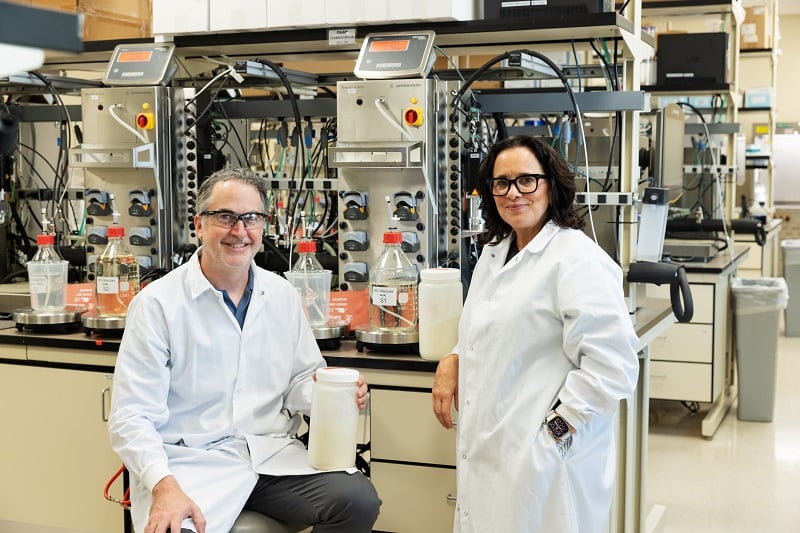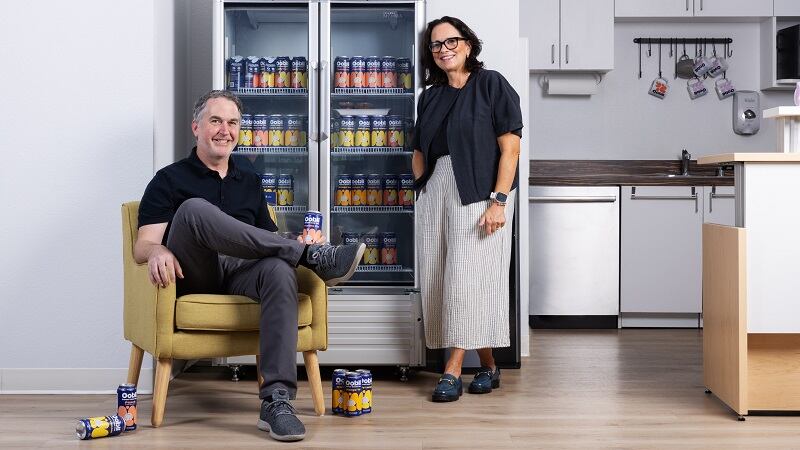In a 48-hour research and development “sprint” last fall, US-based sweet protein producer Oobli and stevia supplier Ingredion co-developed a sugar reduction solution as a pilot for a potential business partnership, which the two companies will sample at the upcoming Future Food-Tech event in San Francisco, the food-tech company’s CEO Ali Wing said.
Last year, the maker of GRAS-affirmed monellin and brazzein – sweet proteins that are 2,000-5,000 times sweeter than sugar – connected with Ingredion to discuss a potential partnership to develop novel sugar reduction techniques, leveraging the two companies’ “natural synergies,” she added.
Then last fall, Ingredion flew several members of its team out to Davis, Calif. – where Oobli is headquartered – to partake in a research and development “sprint,” where the two teams came together to co-develop sugar reduction solutions that blends stevia and sweet proteins before sending it for consumer testing within 48 hours of the exercise, Wing said.
“We have not spent a lot of time yet working with all the other sweeteners. We have been focused on bringing sweet protein to market. And in our own products, we typically just use it with a little bit of sugar. We are not as much the sugar alternative experts,” Wing elaborated.
She added, “What we decided to do is let’s actually get our teams together and get our hands on products together before we even try to define a partnership.”
Oobli develops a systems approach to sugar reduction
Previously, Oobli outlined its ambitions of working with ingredient systems and other major ingredient suppliers, having also partnered with baked goods company Grupo Bimbo last year. Ingredion was on Oobli’s shortlist of prospective partners, given its expertise in sugar reduction, Wing noted.
In recent years, food tech startups formed numerous strategic partnerships to bolster the long-term financial viability of their companies and assist with ingredient commercialization. For instance, Israeli-based alt-protein company Polopo partnered with CSM Ingredients to develop bakery applications for the food tech company’s ovalbumin powder.
The Global Food-Tech Awards honors innovative startups
The Future Food-Tech event honors innovative startups with a new award program called The Global Food-Tech Awards. The US competition is currently underway and startups with 20 or fewer employees are encouraged to apply here. The deadline for applications is Feb. 28.
Large ingredient companies “are an important part of a growth company’s learning curve” as they provide scale and expertise that smaller companies cannot get on their own, Wing noted. Additionally, ingredient companies offer food tech companies to be part of a systematic approach for improving consumer health, she added.
“There are very few silver bullets when it comes to food, let alone sweeteners. In the world, most show up in systems, and systems are unique and complicated. I think that sweet proteins have the potential — taste, cost, health, climate — to be a major player, if not the player — in some cases — in a lot of those systems and solutions. But my most important goal now is to start to make sure we show up within those systems, and that is all about partnerships and alliances,” Wing elaborated.
Fundraising: ‘This round was about book ending that tech work’
Oobli continues its commercialization with the help of $18 million in Series B1 funding, with participation from Ingredion Ventures, B37 Ventures, Khosla Ventures, Lever VC, Piva Capital, Sucden Ventures and others.
The food tech company raised the money to finish “the initial toolkit of sweet proteins,” seek regulatory approval internationally and domestically and bolster distribution, Wing explained.
“A year ago, we were not quite ready for the big commercial expansion because we were finishing tech, still getting the next regulatory approvals, and then getting the first partnerships that would help us distribute it broadly. But we knew we needed some fuel to do that, and so this round is about bookending that tech work,” she elaborated.
Oobli is on the other side of the boom-bust food tech investment cycle, Wing said. She understands the importance of focusing on business fundamentals like building a pathway to profitability, having helped run several tech companies.
“As a long-time operating CEO who has often been brought into businesses in different technology sectors — some of which were at boom, some of which were at bust, some of which were in neither — you are always managing to those cycles. And so, I prefer the operating cycle of saying, ‘What are the fundamentals that will make this business work?’” Wing said.





